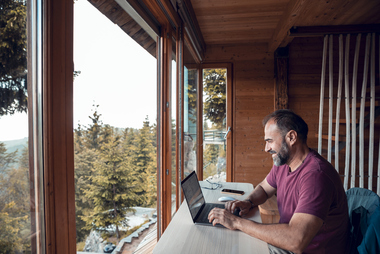Remote Work · February 19, 2024
Trailblazer Elon Musk began insisting in November 2022 that employees at X, then Twitter, must work on-site 40 hours per week. Later, Zoom, an iconic work-from-home enabler, announced in August 2023 that workers living within 50 miles of an office must come in twice a week. That same month, the dating app Grindr demanded workers relocate to its Los Angeles headquarters or another hub city like New York or Chicago. Among 178 Grindr employees, 82 refused and were dismissed.
Remote Work · November 13, 2023
According to 2023 data from Zippia, "66% of U.S. employees work remotely, at least part-time." And that number is expected to keep climbing. So there's a good chance you already have remote employees or will hire them at some point. Either way, remote employees need to have certain soft skills in order to succeed on the job.
October 02, 2023
Whether you transitioned to a remote-work environment because of the COVID-19 pandemic or you have been in the digital space for a long time, a strong culture is essential to your bottom line. For starters, it helps employees develop healthy relationships with one another, makes them to want to show up for work, and improves productivity.
September 12, 2023
Sharing and editing documents is fairly easy with widely used digital tools. But other critically important types of collaboration remain challenging when colleagues don't share physical space — or even time zones. Remote work may be here to stay even after the pandemic subsides, so how do you move forward?
June 13, 2023
According to a Digital Defense Report published by Microsoft in 2021, the private industry's support of remote work, in addition to factors introduced by the COVID-19 pandemic, has made remote workers a lot more susceptible to the actions of cybercriminals. Per the 2021 Microsoft report, "While most industries made the shift to remote work due to the pandemic, it created new attack surfaces for cybercriminals to take advantage of, such as home devices being used for business purposes."
March 28, 2023
Will we need more or less office space as companies ask people to come back to the office this year? Will employers negotiate smaller, cheaper digs after having made their peace with employees working from home more often, or will square footage be necessary to give workers safe distancing space? Will we say goodbye to open floor plans and hello to enclosed offices and even — gasp! — cubicles?

